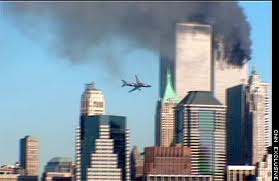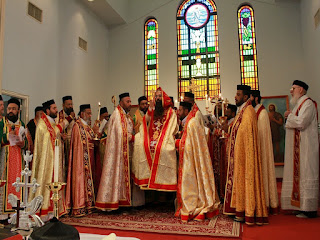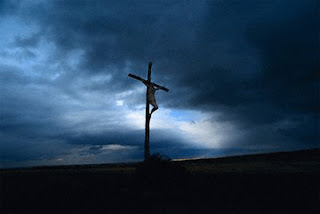The following are my thoughts as I wrote down a week after September 11th 2001. We used to work on John Street in downtown Manhatten, New York - 3 blocks from the WTC site then.
--------------
After 6 days we are back in office.
Lower Manhatten is far from normal. No communication, no electricity in most parts; yet the people are making an effort to return to some form of normalcy.
Our office is 3 blocks away from what was the WTC. The air is still not clear, and in the regions where the twin towers stood, it is still cloudy with dust. I spent a half hour down there, the air makes you dizzy, they are giving out masks for you to wear.
That day - Sept 11th 2001, we reached office early, around 8:45 am. We were starting about our day, begining with checking mails etc, when our boss told us that the WTC was on fire, that a plane had
crashed into it. (Frankly I did not believe the plane part, but I could see the fire from the window).
We searched for news on the internet. MSN news, CNN, BBC etc were not accessible (perhaps due to the traffic) so, I looked at Times of India and it was here that I first read that it was a terrorist attack. (It
was here also that soon after I first saw the horrifying picture of the second plane approaching the towers, a picture which we all have now become so much familiar with).
Soon there was another loud sound,(probably the second plane crash) and we could see the people running helter skelter on the ground.(We are on the 7th floor)
Our boss came back with the news that he saw people jumping down to their death from the towers. We switched on the news on the radio and were thinking of what we must do when we heard another loud sound (probably the first tower falling). All of us almost instantly decided to leave and we all took the stairs down. On reaching down we heard the building authorities making an announcement over the public
announcement system that the building was being evacuated.
We were escorted to the back exit, visibility was low as there was the continuous shower of rubble and dirt falling.I did not have the faintest idea then why the rain of rubble was falling.
We walked through the streets, someone said "Go towards the sea", and we walked towards the sea port. The crowd then moved towards the Brooklyn Bridge. While on the bridge we, could get a good view of the burning tower. We could see only one tower, someone said, the other had fallen,I did not believe them."They are overreacting" I thought,"May be the other tower is just hidden from view".But halfway into the Brooklyn Bridge we looked back to see the other tower too coming down into a giant mountain of rubble. We walked faster; the idea was to get as far away from Manhatten as possible. We reached Brooklyn and looked back and could see only a large cloud of smoke where Downtown Manhatten was, and the cloud was steadily moving towards us, we thought.
We walked in the direction of Queens, and around 2 hours later, we got a bus that got us to the edge of Brooklyn and then another bus took us to Queens and home.
Only when we saw the pictures on TV, did we realise how close we were to the death that hovered all around WTC that day, the same place where we get down from the subway daily and pass by as we head for office each morning.
In the morning that day, we heard the conductor on the subway greet everyone saying "Haleluiah". At that time, I dismissed the remark as that of another American jerk. But before the end of the day, the importance of those words were brought out to me in such a manner that I will never ever forget, as the events of the fateful day unfolded.
"Haleluiah".
Please pray for the thousands in and around the WTC who were not as lucky as we were.
Like Senator Hillary Clinton remarked - "All they did was - go to work".
Src: ICON
--------------
After 6 days we are back in office.
Lower Manhatten is far from normal. No communication, no electricity in most parts; yet the people are making an effort to return to some form of normalcy.
Our office is 3 blocks away from what was the WTC. The air is still not clear, and in the regions where the twin towers stood, it is still cloudy with dust. I spent a half hour down there, the air makes you dizzy, they are giving out masks for you to wear.
That day - Sept 11th 2001, we reached office early, around 8:45 am. We were starting about our day, begining with checking mails etc, when our boss told us that the WTC was on fire, that a plane had
crashed into it. (Frankly I did not believe the plane part, but I could see the fire from the window).
 |
| 2nd plane approaching WTC - sept11 2001 |
was here also that soon after I first saw the horrifying picture of the second plane approaching the towers, a picture which we all have now become so much familiar with).
Soon there was another loud sound,(probably the second plane crash) and we could see the people running helter skelter on the ground.(We are on the 7th floor)
Our boss came back with the news that he saw people jumping down to their death from the towers. We switched on the news on the radio and were thinking of what we must do when we heard another loud sound (probably the first tower falling). All of us almost instantly decided to leave and we all took the stairs down. On reaching down we heard the building authorities making an announcement over the public
announcement system that the building was being evacuated.
We were escorted to the back exit, visibility was low as there was the continuous shower of rubble and dirt falling.I did not have the faintest idea then why the rain of rubble was falling.
We walked through the streets, someone said "Go towards the sea", and we walked towards the sea port. The crowd then moved towards the Brooklyn Bridge. While on the bridge we, could get a good view of the burning tower. We could see only one tower, someone said, the other had fallen,I did not believe them."They are overreacting" I thought,"May be the other tower is just hidden from view".But halfway into the Brooklyn Bridge we looked back to see the other tower too coming down into a giant mountain of rubble. We walked faster; the idea was to get as far away from Manhatten as possible. We reached Brooklyn and looked back and could see only a large cloud of smoke where Downtown Manhatten was, and the cloud was steadily moving towards us, we thought.
We walked in the direction of Queens, and around 2 hours later, we got a bus that got us to the edge of Brooklyn and then another bus took us to Queens and home.
In the morning that day, we heard the conductor on the subway greet everyone saying "Haleluiah". At that time, I dismissed the remark as that of another American jerk. But before the end of the day, the importance of those words were brought out to me in such a manner that I will never ever forget, as the events of the fateful day unfolded.
"Haleluiah".
Please pray for the thousands in and around the WTC who were not as lucky as we were.
Like Senator Hillary Clinton remarked - "All they did was - go to work".
Src: ICON



















































